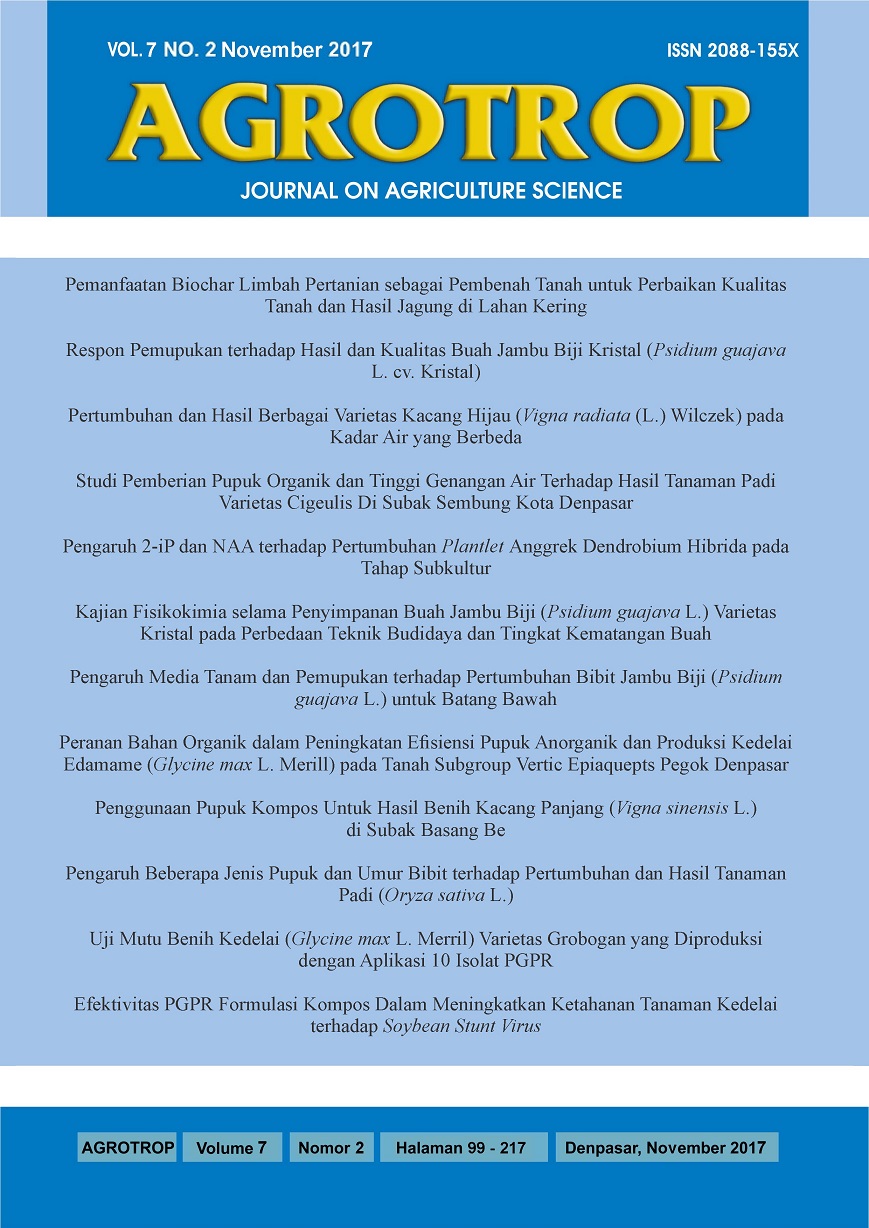Efektivitas PGPR Formulasi Kompos Dalam Meningkatkan Ketahanan Tanaman Kedelai terhadap Soybean Stunt Virus
Abstract
Effectiveness of PGPR Compost Formulation in Improving Soybean Plant Resistance to Soybean Stunt Virus. Soybean stunt virus (SSV) is one of important obstacles of soybean production in Indonesia. This virus causes the stunting on soybean plant and may cause the yield losses up to 71%. Eight isolates of plant growth promoting rhizobacteria (PGPR) were isolated and tested for their efficacy to control SSV on soybean. Those isolates are Paj, Pak2, Pa1, Pa3, Pa4, BT, and KT. Application of PGPR was done by soaking the seeds in PGPR solution prior to planting and application of PGPR in compost formulation. Virus concentration and disease incidence were determined using DAS-ELISA. Results of this study showed that application of PGPR in compost formulation suppressed disease incidence caused SSV. Disease incidence on treated plants ranged between 10% to 25%, while all of plant (100%) on un-treated plants were infected. Peroxidase activity on treated plants increased by 80.25% to 97.33% in comparison with un-treated plants. These results suggested that application of PGPR in compost formulation could increase the resistance of soybean against SSV. Hence, PGPR can be considered as one of measures to control SSV on soybean.











